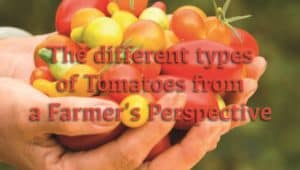NEWS
Stay updated on the latest developments in plant science policy and EPSO activities!
EPSO welcomes the EC Farm to Fork Strategy and offers to collaborate with the European Commission, the Member States and stakeholders to implement it.
EPSO appreciates that the strategy links Food and Nutritional Security, environmental sustainability and human health. EPSO urges to apply this approach across the strategy as a whole.
Concepts like diverse crops for diverse diets and human and resilient production, as well as combined approaches on crop improvement, crop management and crop processing, will enable interdisciplinary approaches with co-benefits in Europe and beyond.
EC rightly defines the goals and should lead the process to achieve these – based on open and transparent approaches raging from research to innovation, public procurement to legislation.
We provide further insight on how these concepts can benefit the implementation of the strategy and how plant scientists can contribute to this in the Annex of the full statement.
Click here to read: Full EPSO statement 2.6.2020
Contacts:
- Karin Metzlaff, EPSO, BE
- Alan Schulman, LUKE, FI & EPSO President
- Angelo Santino, CNR, IT & EPSO NS WG chair
The European Plant Science Organisation (EPSO) welcomes the ongoing European Commission (EC) study on new genomic techniques (NGTs). These are defined as techniques capable of changing the genetic material of an organism, which have emerged or have been developed since 2001. In this statement, EPSO refers specifically to genome editing leading via mutagenesis (point mutations or other modifications existing in nature) in plants and products obtained thereby.
EPSO members remarked that the implementation of GMO legislation with regard to NGTs did not cause any major technical obstacles, but represents a major administrative and financial burden, leads to increasing space constraints in GMO facilities, drastically reduces the number of field experiments, causes problems with the status of incoming germplasm, and has a negative impact on funding and on bringing products to the market.
Despite these constraints, fundamental and applied research on NGTs and NGT products is still blooming in Europe and concerns over 50 plant species. Although the ECJ ruling of 2018 led to widespread demotivation and reduced funding, efforts continue to increase the range of species and of genotypes in which NGTs can be applied, to further enrich the binding and/or cutting features of Cas9-like enzymes, and to generate the knowledge needed to improve traits by NGTs. A research gap exists in the comparison of NGTs to older techniques with a history of safe use.
NGTs and NGT products present numerous benefits and opportunities since they are a tool of choice to address major challenges to agriculture in Europe and worldwide, such as the overuse of pesticides and inputs, climate change, crop monocultures, and the desire for improved food and feed. NGTs can contribute to meeting and managing these challenges by enhancing genetic progress towards more diverse, better adapted, and yet high-yielding plant varieties.
EPSO did not note any specific concerns on NGTs or NGT products but identified obvious challenges. The detection of NGTs in foreign germplasm and products is not feasible, SMEs are not able to play a notable role due to the high cost of licence fees and of regulatory approval, and patents on NGTs and NGT traits raise questions on access to NGT technology and its coexistence with plant variety rights. Safety concerns should not differ from those relevant to plants obtained using methods with a history of safe use, because NGT mutations could also arise in nature or during conventional breeding programs. Off-target events can easily be reduced to a level similar to that of spontaneous mutations occurring during natural plant reproduction in conventional breeding.
The real question on ethical aspects is not whether NGTs or NGT products as such are acceptable, but whether the use we make of them supports commonly accepted values and avoids harm to humans and the environment. It would be ethically problematic to reject NGTs having beneficial traits, provided they are not considered to pose a higher risk to humans or the environment than similar varieties developed by conventional methods.
With regard to consumers’ right for information and freedom of choice, EPSO is opposed to obligatory labelling because it implies that NGT products as such are harmful or problematic, could not be enforced, and would lead to both labelling and non-labelling of identical products. Voluntary labelling has the advantage of giving voice to different types of values, maintaining information levels equal to all actors, and taking into account various lifestyle choices.
NGTs and NGT-products have a role to play in the European Farm-to-Fork strategy by ensuring sustainable food production and the shift to healthy, sustainable diets, for example through disease resistant crops, reducing pesticide use, and allergen-free food that promotes human health. They can also contribute to implement the European Biodiversity strategy by improving the performance and nutritional content of underutilised fruit, vegetable and cereal crops and thereby substantially increase diversity of cultivated crops.
Click here to read: Full EPSO statement 27.5.2020, EPSO submission to the EC 13.5.2020, EPSO Reference list submitted to the EC 13.5.2020
Contacts:
- Peter Rogowsky, INRAE, FR & EPSO AgT WG chair
- Frank Hartung & Ralf Wilhelm, Julius Kühn-Institute (JKI), DE & EPSO AgT WG chairs
- Karin Metzlaff, EPSO, BE
The Research and Technology Organisation Association Lithuania (RTO Lithuania) and The Lithuanian Research Development and Innovation Liaison Office in Brussels (LINO). would like to invite you to the webinar: Post-COVID Green Deal Technology-Powered Recovery in Europe, which will take place on the 2nd of June 2020, 14-15 CET.
How COVID-19 pandemic will affect European Green Deal? Will EU recovery be sustainable and technology-powered? On these and other urgent issues we will speak with three guest speakers:
– Virginijus Sinkevičius, EU Commissioner for the Environment, Oceans and Fisheries
– Prof. Antti Vasara, President of EARTO, President & CEO of VTT Technical Research Centre of Finland
– Prof. Gintaras Valušis, EARTO and RTO Lithuania board member, Director of Center for Physical Sciences and Technology, Lithuania
If you are interested, do not hesitate to register. The webinar will be organised via Zoom with a total amount of 100 people. You can do that by clicking on this link: https://tinyurl.com/greendealwebinar.
TOMRES is a Horizon 2020 project offering “A novel and integrated approach to increase multiple and combined stress tolerance in plants using tomato as a model”.
It aims to reduce N and P application by at least 20%, water input by 40%, while granting environmental sustainability and economic viability of the solutions proposed through novel genotypes X management strategies.
This relies on selecting rootstocks and scions tolerating both water and nutrient stress; as well as novel traits, in particular belowground, for a breeding exploitation. Furthermore, studying the role of selected hormones, such as strigolactones and brassinosteroids, could allow to identify further resilience traits. Laboratory research is complemented by analysis of environmental and of socio-economic impact to build a decision support system.
TOMRES has published two videos to explain to the general public its project as it is close to an end, especially focusing on the role of tomatoes in creating a sustainable crop for global production:
- The Red Fruit: What Makes Tomato So Special?
- The Different Types of Tomatoes From A Farmer’s Perspective
More scientific details are available on TOMRES website
Please disseminate these videos through your networks to scientists, companies, farmers and the general public.

ERC Advanced Grant support established, leading principal investigator who can demonstrate a ground-breaking nature, ambition and feasibility of their scientific proposal.
The call is open to any field and nationality. It offers up to a maximum of EUR 2 500 000 for a period of 5 years.
Up to an additional EUR 1 000 000 can be requested in the proposal to cover (a) eligible “start-up” costs for Principal Investigators moving to the EU or an Associated Country from elsewhere as a consequence of receiving the ERC grant and/or (b) the purchase of major equipment and/or (c) access to large facilities and/or (d) other major experimental and field work costs, excluding personnel costs. (As any additional funding is to cover major one-off costs it is not subject to pro-rata temporis reduction for projects of shorter duration. All funding requested is assessed during evaluation).
Deadline for application: 26 August 2020
Source : EC , 14.05.2020
